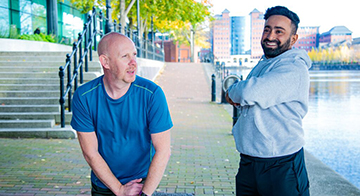Bupa Global launched its Executive Wellbeing Index on 28 September 2020, the first report of its kind to look at the impact of the coronavirus pandemic on global business leaders and wealth creators who will shape the post-COVID world.
The new research, commissioned among almost 2,000 high net worth individuals (HNWIs) and senior executives based across Europe, North America, the Middle East and Asia, in seven key regions, highlights the extensive physical, emotional and economic fallout the pandemic has brought about.
And importantly, it examines how this unprecedented event will bring about changes that will shape the future of business, how we balance work and home life, and attitudes to wellbeing and mental health.
- The mental health toll of the pandemic on HNWIs around the world has been high. Seven in 10 experienced poor mental health during this time – rising to eight in 10 business leaders. And for many, this was a new experience. But nearly a third of HNWIs delayed seeking help due to the pandemic – rising to 40% at boardroom level
- In the wake of this, the vast majority of HNWIs and heads of business will be initiating shifts to re-calibrate work-life balance, enable greater focus on overall wellbeing, and prevent health issues in the future for themselves and those they work with
- Over half of board-level executives are planning not to return to the same fast pace of life and nearly a third will continue to work mostly from home, some even working permanently from their holiday homes. Others plan to manage down their hours (24%), spend more time with family and friends (36%), as well as cut down on travel, both for personal and environmental reasons
- To prevent future health issues, executives intend to take more regular exercise (38%, maintain a better diet (32%), and make more time for meditation and mindfulness (30%). Nearly a third will actively focus on adopting more preventative healthcare such as regular health checks, supplements and vaccinations
- And the pandemic has acted as a catalyst for change in the workplace as well, including greater investment in technology to enable flexible working (29%), fewer face to face meetings (25%) and decentralised teams (17%). While one in four executives commits to providing more or better mental health and wellbeing support for colleagues
- Six in 10 global executives also shared that their attitudes towards their local public and private healthcare systems have improved during the COVID-19 pandemic. Seven in 10 are planning to purchase private medical insurance in the next 12 months, expecting greater emphasis on preventative care (including maintenance of good mental health) as well as supporting mental ill-health.
Download the full report (PDF, 5,194KB), or visit our newsroom to view our international press release




